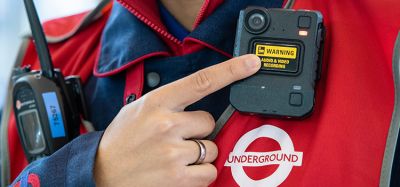Security on the Athens Metro
- Like
- Digg
- Del
- Tumblr
- VKontakte
- Buffer
- Love This
- Odnoklassniki
- Meneame
- Blogger
- Amazon
- Yahoo Mail
- Gmail
- AOL
- Newsvine
- HackerNews
- Evernote
- MySpace
- Mail.ru
- Viadeo
- Line
- Comments
- Yummly
- SMS
- Viber
- Telegram
- Subscribe
- Skype
- Facebook Messenger
- Kakao
- LiveJournal
- Yammer
- Edgar
- Fintel
- Mix
- Instapaper
- Copy Link
Posted: 9 August 2007 | Dimosthenis Giannisopoulos, Chief Security Officer, Athens Metro | No comments yet
Preparing the Athens Metro for the Olympic Games 2004 in Athens was a multi-faceted project. As the Chief Security Officer, I was called upon to not only produce a security plan, but also to evaluate the situation in regards to what was necessary in terms of training and equipment required. Public transport – which had rarely been a prime target of terrorism in the past – is becoming one of the most common targets today due to its vulnerability.
Preparing for the Athens 2004 Olympic Games was a joint venture between the Athens Metro and the Police, Fire, Ministry of Public Defense, Civil Protection, and Ministry of Health, as well as the Athens Olympic Committee. As a result, the most important task was to co-operate with and co-ordinate the different agencies and to produce an outcome that would be accepted and endorsed by all parties involved. But the primary priority was the safety of passengers and personnel.
Preparing the Athens Metro for the Olympic Games 2004 in Athens was a multi-faceted project. As the Chief Security Officer, I was called upon to not only produce a security plan, but also to evaluate the situation in regards to what was necessary in terms of training and equipment required. Public transport – which had rarely been a prime target of terrorism in the past – is becoming one of the most common targets today due to its vulnerability. Preparing for the Athens 2004 Olympic Games was a joint venture between the Athens Metro and the Police, Fire, Ministry of Public Defense, Civil Protection, and Ministry of Health, as well as the Athens Olympic Committee. As a result, the most important task was to co-operate with and co-ordinate the different agencies and to produce an outcome that would be accepted and endorsed by all parties involved. But the primary priority was the safety of passengers and personnel.
Preparing the Athens Metro for the Olympic Games 2004 in Athens was a multi-faceted project. As the Chief Security Officer, I was called upon to not only produce a security plan, but also to evaluate the situation in regards to what was necessary in terms of training and equipment required. Public transport – which had rarely been a prime target of terrorism in the past – is becoming one of the most common targets today due to its vulnerability.
Preparing for the Athens 2004 Olympic Games was a joint venture between the Athens Metro and the Police, Fire, Ministry of Public Defense, Civil Protection, and Ministry of Health, as well as the Athens Olympic Committee. As a result, the most important task was to co-operate with and co-ordinate the different agencies and to produce an outcome that would be accepted and endorsed by all parties involved. But the primary priority was the safety of passengers and personnel.
To successfully complete the task, we had to evaluate all available information and take into consideration the Vulnerability Assessment report that was produced by a special group of experts. They were commissioned to the Athens Metro by the Athens Olympic Committee.
When we received the report, we had to evaluate it and decide on the elements and suggestions that were absolutely necessary to endorse and enforce. Our primary incentive was to make the Athens Metro secure, not only in terms of the Athens Olympics, but also before and after the Games. Therefore, we had to take into account a variety of aspects, even ones that weren’t particularly pertinent to the circumstances of this event.
We evaluated our own domestic situation regarding terrorist groups and common crime within the broader realm of modern terrorism. This was namely political orientation, social satisfaction mechanisms, social institutions, historical background, political background, and social background, along with our country’s domestic policies, foreign policies, geographical location and the country’s effectiveness in counter terrorism mechanisms.
After all, the Metro makes an appealing target since a potential terrorist attack on public transport – and especially on a Metro system – would attract worldwide media coverage and create a huge number of casualties. It would also create panic as it disrupted the entire transport system. As well as this, the whole transport system, and particularly the transport method, would gain a bad reputation while the state would be discredited.
In general, the Metro system is vulnerable to terrorism. Consider that a Metro System has:
- Dispersed entrance and exit points.
- Large geographical spread.
- A variety of transport means.
- Lack of access control.
- Weak security network throughout transport agencies.
- Great numbers of people using the system.
Thankfully, there is a way to make the Metro System secure for the passengers and its employees. There is plenty we can do in order for everyone to feel safe and be safe. Assessment and monitoring of the terrorist threat is the primary responsibility of the national authorities. But the operator should also be aware of security issues and be ready to come up with solutions and proposals.
The operator must be the one to address the security issues and make sure that the government is aware of them, while also working together to offer solutions.
The operator is primarily responsible for:
- Presence of Corporate Culture regarding security.
- Presence of an in-house contracted security force.
- Presence of patrols and ticket inspections throughout the system.
- Presence of a well-controlled public environment, clean stations, law and order.
- Constant application, monitoring and a ‘no tolerance’ approach to any deviant behaviour.
- Presence of preventive measures (including chemical gas detection systems, access control systems, and explosive detection systems).
- Presence of established procedures for handling emergencies.
- Effective access control in all restricted areas.
- Effective communication of all agencies involved.
- Establishment of co-operation and communication protocols
Since the Olympics were to take place in Athens, there were also some other significant factors that had to be taken into account:
- International participation.
- Held in Greece; their place of origin.
- Held in the birthplace of democracy and western civilisation.
- Held during a time of unrest and conflict in the Middle East.
- Held after the 9/11 attack.
- Held in a time of global unrest and controversy regarding the Iraq war.
- Held in the geographical locality of the Balkans.
- Largest worldwide athletic event.
Therefore the Metro should be able to offer:
- A Security and Control Department that answers to the Metro Chief Security and to the organisation’s Managing Director.
- Contract Security if needed. This would be provided by the security services companies that are managed by the Metro Security and Control Department.
- Special Police guards (assigned to the Metro System but commanded directly by the Police).
- Preliminary training in security issues (in-house and contract) for all personnel.
- Extensive training for AMOC security and control personnel (covering self defense, body language, patrol duty, security and control procedures, emergency procedures, first aid, first responder training for WMD incidents, crime prevention methods, pre-incident indicators, risk assessment procedures, conflict resolution strategies, defensive tactics techniques, and report writing)
- Training provided for Emergency Procedures
In cases of natural disasters and terrorist attacks
- Training provided for Safety and Security Procedures (regarding responses to potential threats, hazardous materials, abandoned items, suspicious items, terrorist acts, and various other incidents).
- Training provided for effective communication with the public and other agencies.
- CCTV cameras in constant operation, monitoring all public spaces including platforms, and other system areas.
- CCTV system monitored by the Security Controller.
- Local station CCTV systems monitored by the Station Master.
- Secure operation control room with special anti-blast steel doors, bullet proof glass, and bio-metric technology for special identification process.
- Airlocks and shafts reinforced with steel nets, inside locks, and special non-duplicable keys.
- Train depot continuously guarded.
- Special entrance checkpoints to all sensitive areas or equipment.
- Special identification process for all personnel and visitors.
- Reinforced fence around the depot and office facilities and a CCTV system in place, too.
- Movement detection system installed, alongside a wired fence.
- Special entrance violation security alarm system installed throughout the network for entering the tunnel without authorisation.
- Foot patrols in all sensitive areas.
- Vehicle patrols around stations and office facilities.
- Security Control Centre, manned with 24-hour surveillance of the Metro CCTV system and direct communication with the security and police forces.
- Implementation in all stations of a jamming system for mobile telephone signals.
- Detection system for unattended or suspicious objects.
Monitoring
- Alarm system for all ventilation or other shafts connecting to the entire subway system.
- Wireless digital portable radio communication and cellular phones, available for security personnel.
- Wireless emergency communication system available in the stations.
- Software system for detecting unattended objects via the CCTV system, with digital recording in public spaces.
The Olympic heritage
Having the Games in our city created a legacy of co-operation, co-ordination and effective measure implementation between the Metro and all the Government agencies that were involved.
The mission of the Security and Control Department is to enhance the quality of life for the employees and passengers of the ATTIKO Metro lines 2 and 3, and by maintaining a secure and open environment where the safety of all is balanced with the rights of the individual. The department strives to accomplish its mission while adhering to its core values of pride, professionalism, and service.
The success of this mission depends upon an effective working relationship between Security and Control Department personnel, and the diverse elements of the ATTIKO Metro passengers, employees, and contractors.
Critical to this relationship is mutual respect. Therefore, we pledge to respect the diverse needs and interests of the community we serve. We pledge to be diligent and relentless in the protection of people and property.
In return, we ask that our partners in the community assume their individual and collective responsibilities to make the Athens Metro subway a place that is free of crime, fear and disorder and to provide a civil and open environment that fosters security and safety for all.







